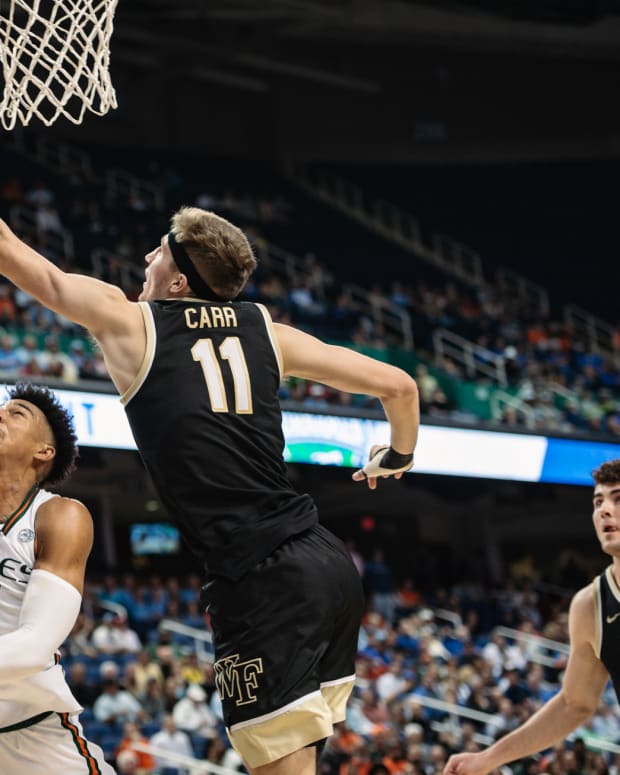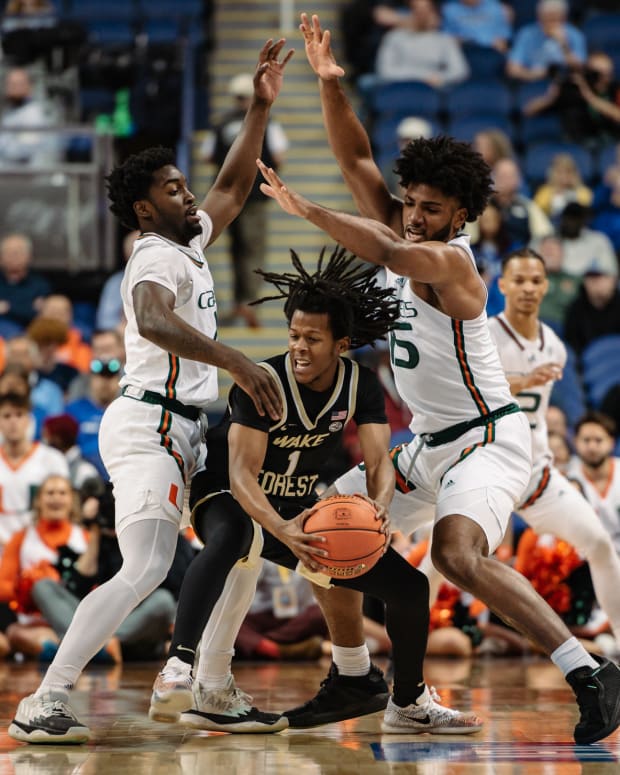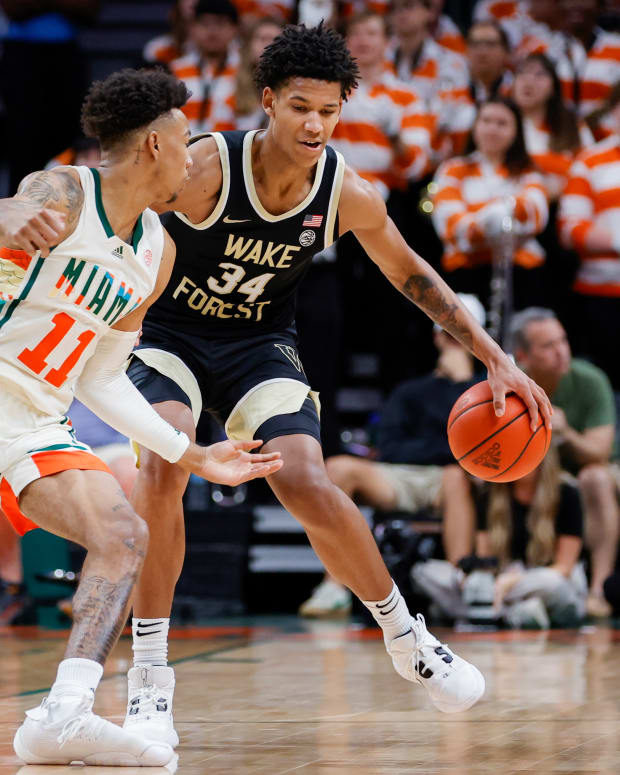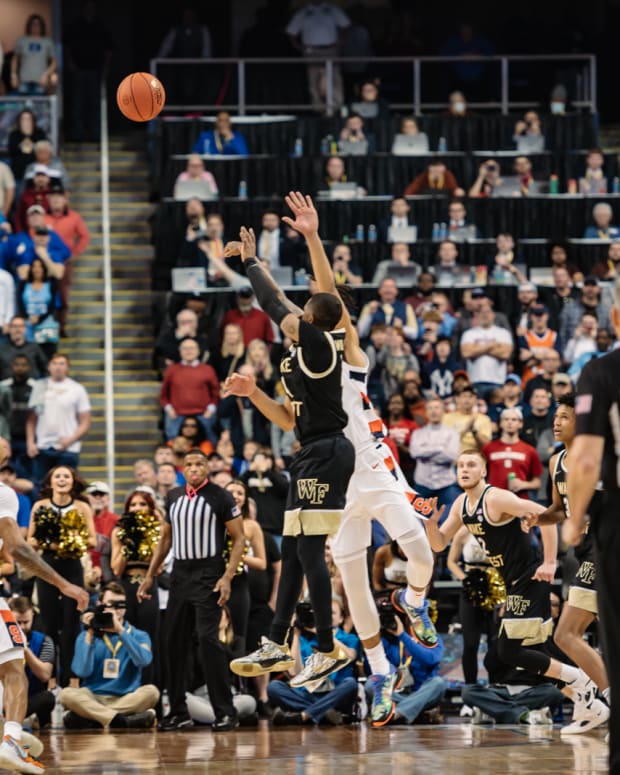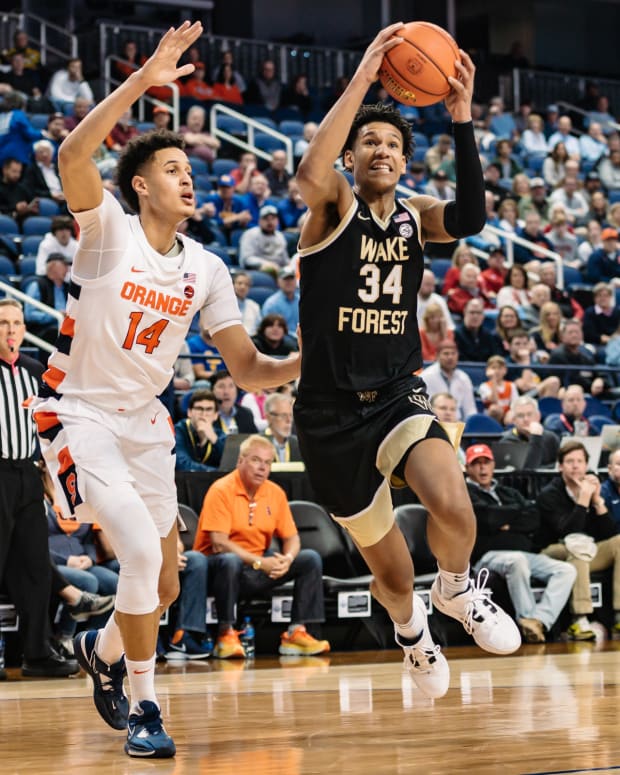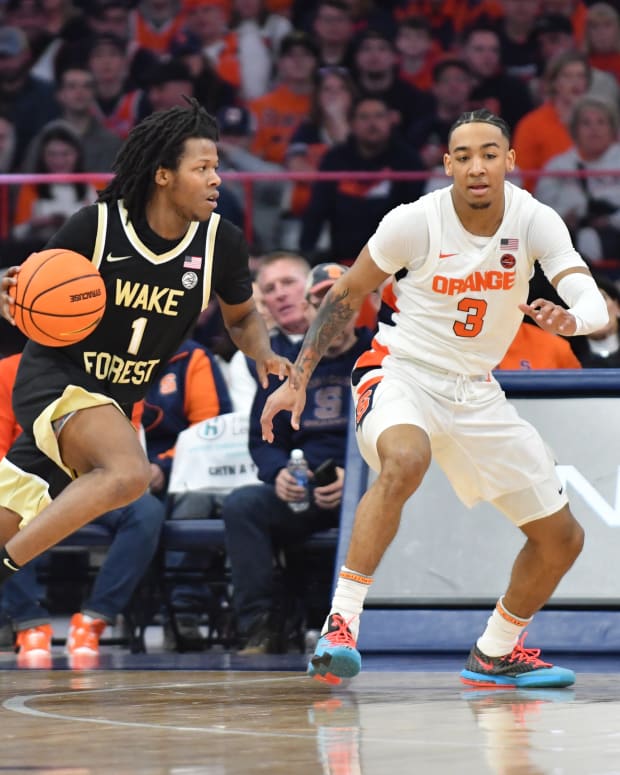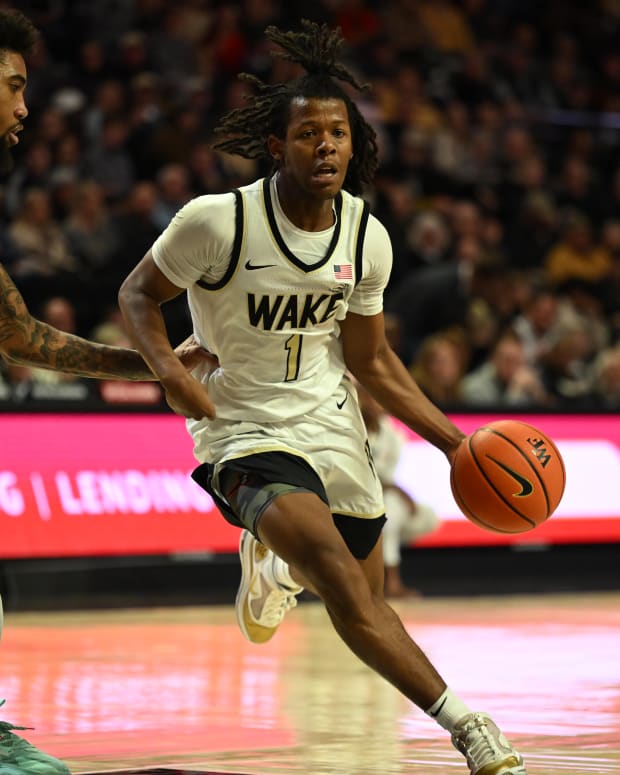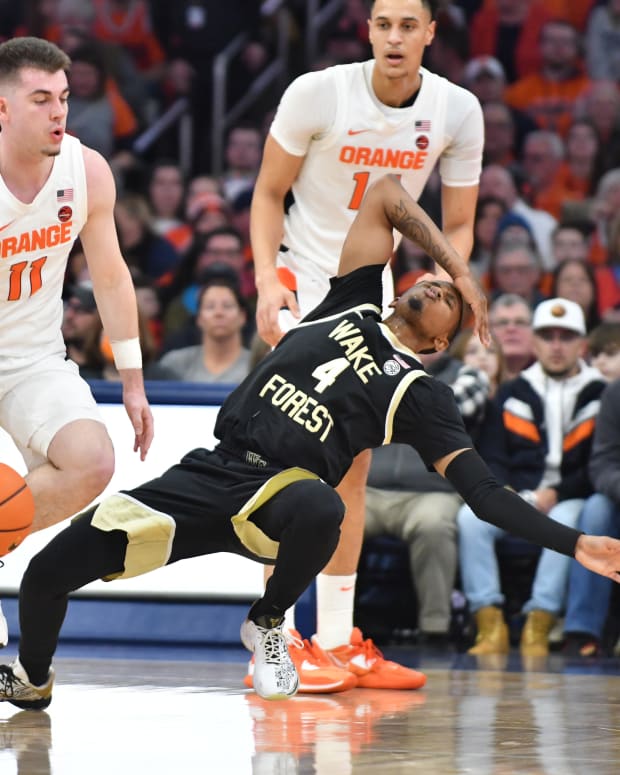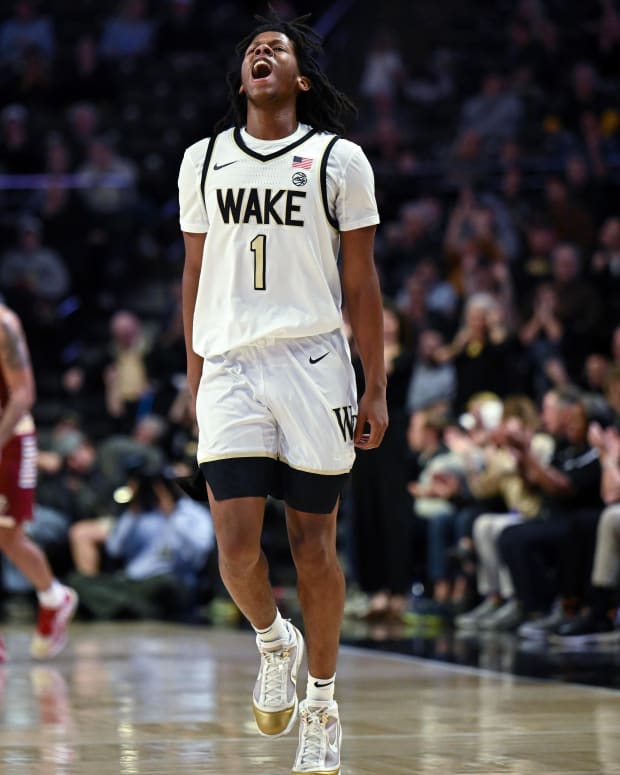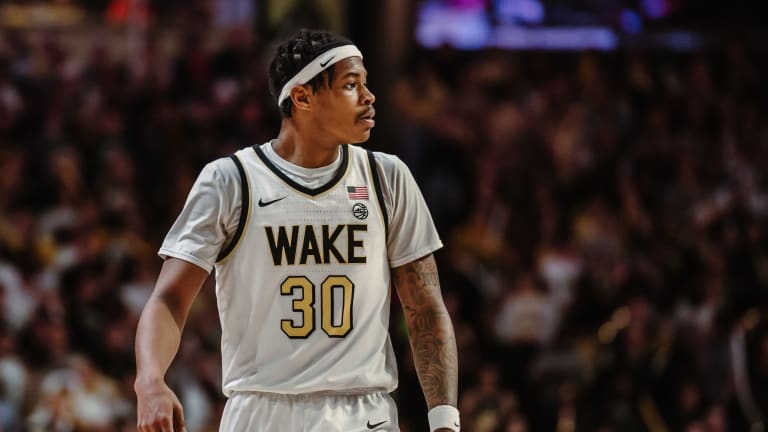
Keys to the Game: Wake Forest Basketball vs Pittsburgh
Wake Forest is set to hit the road on Wednesday night, heading north to take on the 13-7 Pittsburgh Panthers. Both teams are coming off losses, as Pitt fell to Florida State at home a few days ago and Wake lost by nine to Virginia in their last outing. Here are a few keys that could help Wake Forest return to Winston-Salem with a win.
READ: How to Watch: Wake Forest vs Pitt Men's College Basketball
Get to the line
Wake Forest has done an exceptional job of earning trips to the charity stripe this season, attempting at least 20 free throws in their last four contests (including 33 in the win over Clemson last week). The Deacs excel when they can get opposing teams’ best players into foul trouble and force them to take a seat. Against Virginia, the Deacs entered the bonus with over 10 minutes to play.
Through 20 games, Wake Forest averages 19.7 FTAs per contest. In a hostile road environment, Wake Forest will need the extra foul shots to settle in and help build a cushion against a team that’s proven themselves a tough out all season long. Tyree Appleby is Wake’s best foul shooter at just under 83% and excels at drawing contact — he was fouled a whopping nine times in Wake Forest’s win over Clemson. Cam Hildreth also loves to attack the rim and draw fouls — nine of his 16 points against Virginia came from the free-throw line. Look for these two to stay aggressive to give the Deacs an edge on the road.
Also, this Pitt squad is fairly thin at the moment, especially with forward John Hugley (18.1 mpg) out for the rest of the year due to mental health concerns. As it stands now, the Panthers have six players logging over 20 minutes per game, but no one else is over 11.3. Wake could use the Panthers’ lack of depth to their advantage by getting some of their key pieces in foul trouble and taking control of the game.
Prevent offensive rebounds
Pittsburgh is in the top half of the ACC in offensive rebounding, averaging 10.4 offensive boards per contest. Conversely, the Deacs have struggled to crash the defensive glass effectively at times — Virginia grabbed 10 offensive rebounds and created 10 second-chance points during Saturday’s matchup.
Wake Forest simply can’t afford to give Pitt that many extra possessions. 6-11 center Fede Federiko is a force on the glass due to his size, and Blake Hinson leads the team with 6.8 rebounds (1.95 OREBs) per contest. Steve Forbes commented that Matthew Marsh struggled rebounding against Virginia — he’s shown flashes of being a capable rebounder this season but hasn’t been able to string together quality outings on the glass. Marsh stands at 7-1 but averages fewer rebounds per game (4.5) than Andrew Carr (6.2) and Cam Hildreth (6.4) who are both shorter than him.
Andrew Carr has been a force on the boards recently, recording 34 rebounds over his last three games. He’s playing with more physicality and confidence than earlier in the season, and Wake will need him to continue his high level of play in order to come away with a road victory.
Knock down the three ball
Wake Forest is a slightly better three-point shooting team than Pitt, knocking down the deep ball at a rate of 37.4% compared to the Panthers’ 33.8%. Against Virginia, Wake didn’t live up to their season average, hitting 9/27 triples and, as a result, were held under 70 points in regulation for just the fifth time this season. Reaching the 70-point mark has proven critical for the team to win — they’ve failed to do so in regulation in five of their six losses this season — and they’ve relied heavily on the three-ball to get there.
Enter Damari Monsanto. Monsanto has been on fire of late, scoring at least 20 points in three of his last five games and drilling 22 threes over that span. He’s shown himself to be the best pure shooter on the team, and I think the Deacs are much more likely to come away with a win if Monsanto can continue to hit the three at an efficient rate.
Follow @DeaconsDaily on Twitter and Instagram for more Wake Forest content
